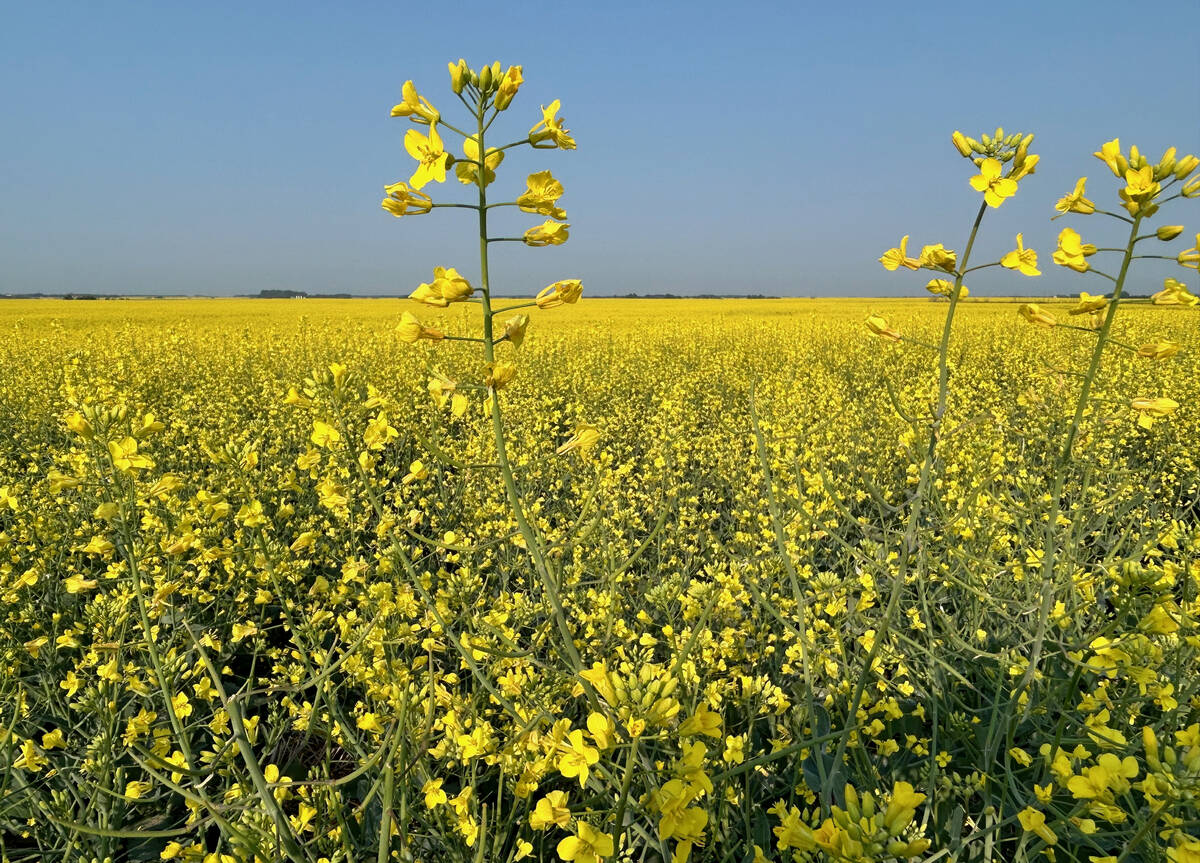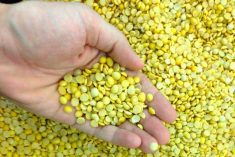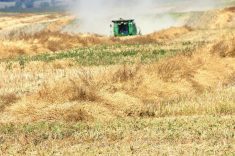Canada’s grain industry expects the federal government will soon officially declare agriculture an essential service.
Wade Sobkowich, executive director of the Western Grain Elevator Association (WGEA), says that designation will have a practical application.
“Hopefully it ends all confusion about grain workers at elevators, railway workers and anybody else required for moving grain, as to whether they should be showing up for work under the new distancing and safety protocols and doing their jobs,” he said.
The official designation has never been granted, despite Agriculture and Agri-Food Minister Marie-Claude Bibeau often saying it is, stating the obvious: “People have to eat.”
Read Also

Farmers expected to boost canola area beyond Statistics Canada intentions report
Canadian farmers might plant more canola acres than the 21.8 million that Statistics Canada reported in its seeding intentions report released on Thursday morning, analysts told Reuters.
So have Prime Minister Justin Trudeau and Deputy Prime Minister Chrystia Freeland.
Why it matters: The sector needs not only to produce food, but workers to process and transport it to domestic and international markets.
Some might argue Canada should focus on feeding itself in these unprecedented times, but the WGEA disagrees.
“Exporting grain is a priority if you want goods from other countries,” Sobkowich said. “Other countries have been in touch with our government wanting some certainty about supply during this crisis. Everybody in the world needs food so you have to reciprocate and you have to continue to keep grain and other products that go into processing food flowing.”
Part of the concern about declaring grain movement ‘essential’ stems from labour regulations, Sobkowich said. For example, longshoremen can’t strike against moving grain.
“But when we talk about grain being essential we’re not talking about the capital ‘E’ definition in the Labour Code,” he said. “We’re talking about the critical infrastructure to keep the supply chain flowing (during COVID-19).”
Canada normally has a “highly robust and resilient” food supply chain, but COVID-19 threatens the system, a policy paper by Agri-Food Economic Systems warns.
“The coronavirus pandemic and COVID-19 threat creates risks that can undermine operations at critical points of the agri-food supply chain due to absenteeism,” Agri-Food Economic Systems said in a release March 22. “It could also threaten the movement and security of segments of the workforce necessary in agri-food.
Employers might have to create a trained pool of temporary workers that can be called on if more employees stay home, Ted Bilyea, an Agri-Food Economic Systems associate and co-author of a policy note on the issue, said in the release.
Industry and government need to acknowledge the potential risks and be prepared to act, report co-author Al Mussell, Agri-Food Economic Systems research lead, said.
“Our agri-food system’s resilience lies in our ability to recognize the risks posed by an emergency, and to expedite the changes needed to secure it,” he said.
The importance of feeding Canadians isn’t lost on Chris Bernardi, chief union steward at Maple Leaf Foods’ Heritage hot dog and sliced meat plant in Hamilton.
“It was sort of an eye-opener, you know, when we took these jobs making lunch meat, we didn’t think we would be essential workers,” Bernardi told Matt Galloway, host of CBC Radio’s The Current, on Wednesday
“But to be honest with you, it’s an honour to me. And a lot of my members feel the same way. We are happy to be on the front line and able to make sure that this country is going to keep eating, because that’s very important.
“I would say if you don’t see your favourite hot dogs or your favourite lunch meat today, they’ll be there tomorrow. We are working around the clock to keep the food chain running and that as long as people realize they don’t have to panic buy because… we are blessed in Canada.
“We do have a great food supply. We do have a lot of natural resources. We’re going to keep the food chain running. And people just have to realize, instead of buying 10 packages today by one package this week, you know, maybe just two packs of hot dogs, because we will keep those hot dogs and lunch meat coming.”
— Allan Dawson reports for the Manitoba Co-operator from Miami, Man.















